Title: Pathologic
Format: PC
Released: 18th August, 2006
Pathologic is not a game. Its creations, the esoteric Russian geniuses known as Ice-Pick Lodge, call it a ‘behavioural simulator.’
Pathologic does not rock your world. Pathologic shakes your world to its foundations and if you are smart and lucky and terribly brave you might be able to build something new from the wreckage.
Now you know. We may begin.
It was the end of 2009, the summer holiday before I started my Honours year in English. For some of you, this might be a time to connect with friends and loved ones, to experience the world and all its multifarious pleasures before descending into twelve months of studious isolation.
I read what remains one of the most stunning piece of games journalism I’ve ever come across, Quintin Smith’s ‘Butchering Pathologic’, and immediately decided to spend the summer indoors playing a game about the inexorable end of all life.
I need to acknowledge my debt to Smith’s piece: both in convincing me to buy the game, and in the long shadow it casts over every other attempt to write about it. I can’t possibly attempt to match his intricate dissection. All I can do is tell the story of what Pathologic did to me.
Somewhere in what are probably the Russian steppes, in a time that is probably before the Bolshevik Revolution, there is a town. There is a plague. You have come to stop it. In twelve days, the game will end.
You play as one of three saviours: the Bachelor, the Haruspicus and the Devotress. The Devotress is an unsettling child who might have prophetic powers and who might be insane. The Haruspicus is a rural shaman who flays bodies to read their entrails. The Bachelor is a medical doctor with a microscope and an unshakeable belief in Enlightenment rationality. In the game’s first brilliant stroke, the two characters you don’t choose go ahead with their investigations, appearing in your story as non-player characters.
The Bachelor did not immediately horrify me, and I’d heard he was the easiest, so I chose him.
I can’t give you a full understanding of the world of Pathologic. It is impossible to comprehend in its entirety. I can give you fleeting snapshots taken in my flight.
Pathologic is a twisted, broken place, a sprawling first-person open-world town of sickly orange skies and vulture-headed guards, of misshapen humans and unbearable architecture. I give it 2 staircases to nowhere out of a possible 10 for graphics. That is not the point.
Pathologic’s control of atmosphere is utterly masterful. It infects the way you think and talk. I’m unable to write about it in anything but this portentous, baroque prose, because to do otherwise would feel like betraying the integrity of a closed universe where everything resonates in the same perfect minor key.
It features either the best or worst translation I’ve ever come across. The dialogue has a brutal, savant-like poetry, cobbled together from gnomic utterances and childish colloquialisms into sentences no human has ever spoken, and at first it makes no sense. Then you play the game more and you realise that this is the only way to express the experience of living in this world. That this is the only way people have ever spoken and could ever speak.
Every day, you have one main task to accomplish: hunt a missing person, recover a plague sample, solve a murder. They will take you into unknown places and put you under suspicion and threat. They are the easy part.
Pathologic features the most unforgiving survival mechanic I have ever seen. You have six meters: hunger, thirst, exhaustion, health, reputation, and disease, if you catch it. You will catch it.
You have to eat, drink, get enough sleep, keep yourself inoculated and your gear in good repair, as well as running errands and giving gifts to keep the town’s people on your side. It is impossible to do all of these things and your main quest perfectly.
The survival mechanism is anchored to a trading system. Every character can trade. They all have different items and different wants. Drunks want bottled water, for which you’ll get reputation. Plague victims want medicine. Food sellers want money, or ammunition.
There are children in the town, and in a stroke of nasty realism I haven’t seen since Fallout 2, they can be killed. They roam the streets in packs. One pack wears masks that resemble the faces of dogs. You never find out if they found them, made them, or cut the faces off dogs themselves. The graphics are so lo-res and unfinished it’s impossible to tell if they’re real or not. I would rather not know.
The children have taken up residency in the town’s mental asylum. It is called the Polyhedron, an impossible structure constructed out of its own blueprints. I walked up to it once, along climbing catwalks that balanced on nothingness, until it loomed in front of me and the dying town spread out beneath. I spoke to a boy and traded with him for medicine he’d taken from the asylum.
The only currency the children will accept is the razor. You never find out why. I would rather not know.
There are fifteen fully-fledged characters, and on the first day, you are told that five of them are your Adherents. You have to keep them alive because they will help you in some way. Everyone else can die. Your Adherents can die too. The game will keep going.
Amidst all this I found a way to survive.
I was walking back to my lodgings on the evening of the second day when I saw a loping, deformed figure across the square. I had time to ready my pistol before a projectile whistled towards me and slammed into my body. Health dropping. Shirt torn. I raised my weapon and charged. Two shots later, the thing was dead. I hear the sound of unearthly laughter. I paid it no mind.
It was a man. The game called him a ‘murderer’. He had a few throwing knives and a loaf of bread. I took them; the knives to trade to the children, the bread to eat.
Each night, murderers would come forth, prowling the streets and killing any they came across.
Each night I hunted them for their supplies. They’re murderers, I told myself. Unlike the complex and mysterious motivations of the other characters, their sole mode of interaction with me was ‘attack’. This was my town now. I was not only its scientist. I was its vigilante.
In the dark night of Day 4, I rounded a corner, saw a man, and shot him. A different noise sounded. I searched his body. No knives. But he had water, and money, where the murderers had none.
He wasn’t a murderer. Murderers wore red flannel-looking coats and walking with a drunken, lolling stride. He was an innocent.
It was at that moment that I realised I could kill whoever I wanted.
It took me killing a few more innocents before I figured out what the noises were. When you shot a bad person, a baby would giggle. When you killed a good person, a baby would cry.
Bang. Baby cries. Take money.
Baby. Baby cries. Take bread and water.
Like I said. I found a way to survive.
Each day you wake up to series of statistics.
This many infected. This many dead. In this many days, the game will end.
It was only on the morning of the sixth day, with the army on its way to quarantine the town, that I looked at those number and realised that the deaths had been skyrocketing far faster than the infections.
The game doesn’t tell you what they died from. Some were killed by the plague. Some were killed by their fellow citizens.
I looked at the numbers and had a few thoughts in rapid succession. The first one: “Oh, at least thirty of those deaths were me.”
Then: “I came to save this town. I am meant to be helping these people.”
Then: The baby was crying for a reason. Embedded within this game’s ethical Escher puzzle there is a Manichean ethics as simple as Fallout 3’s karma meter or a BioWare game’s light and dark. And I am on the wrong side of it.
Then: “I am a doctor. I swore an oath. First, do no harm.”
Then I closed the window and uninstalled the game.
I’ve been telling that story for the past few years. The punchline differs depending on the audience: sometimes it’s an argument for games as the next frontier of art, because Pathologic made me feel something so profoundly unsettling; sometimes it’s a psychological anecdote about how people behave under pressure and the things we do to survive in a crisis.
It wasn’t until the beginning of 2014 that I realised I had missed the moral of my own fable.
At the start of this year, I went through some personal stuff that left me with a profound sense of loss and a staggering shock to my sense of self. Without going into too much detail, I had to confront a simple, terrible fact: I had done a lot of bad things. For some people, the next step was obvious. I was a bad person.
I did what the Haruspicus would do. I opened myself and searched for a reason why, and for a way forward that did not involve living down to the label of Villain. I reached out to friends and family, and they gave me understanding and support, but it wasn’t until I told the Pathologic story that I think I understood.
I work as a director and writer, and I’d missed one of the driving metaphors of Pathologic: performance. When you first meet the three player characters, they are on the stage of the town’s theatre, arguing over who should fight the plague. You step through a door and choose which of them to inhabit. You’re not picking a PC. You’re choosing which role to play in this tragedy.
The reason I was so affected by the deaths wasn’t because they were ethically wrong. It was because I had invested in the role of the Bachelor, a man who swore the Hippocratic Oath, and because I had betrayed his principles. If I’d been playing as the Haruspicus, I probably wouldn’t have batted an eyelid.
This wasn’t the story of a game challenging a person’s ethical beliefs. It was the fable of a boy who falls too easily for another person’s narrative because he doesn’t have one of his own.
For a long time – all of 2013, at least – I’d been trying on different roles in an attempt to break with my past and make sense of adulthood. For a long time before that, I’d been some mix of the Tortured Artist and the Depressive, and that was over. What came in its place was equally unoriginal and potentially much worse. The Rake. The Hedonist. The Trickster, which is a polite, Norse-flavoured way of saying The Inveterate Liar.
I’d been doing what I thought someone playing my role would do. In the process I’d lost track of what I wanted and I’d lost track of my ‘I’. Maybe I hadn’t had one for a while. And maybe this is why I’m attracted to a particular kind of videogame: the RPG, which we often forget is short for Role-Playing Game. Because it gives me an identity I can sit within and use to supplant my own for a few safe hours.
Open-world games have always been too big for me. I’ve never been the kind of gamer who tests the limits of the system. I couldn’t get into Just Cause 2, or Mount & Blade, or DayZ. I love stories – they’re my job, after all – and I play games to gain some greater understanding of the universe and the living humans within it, which I see as the function of all art.
What I didn’t realise is that playing a role is easy. You’re just following a marker, despite what BioShock taught you. It’s what you do when confronted with the dazzling infinite freedom of our mundane reality that defines who you are.
So I sewed myself up and started to write a new story, starting in 2014, about a person who took the time to figure out what he cared about, and who wanted simply to be a good son, a hard worker, and a loyal friend and partner. Someone who might want to have a baby one day, and who wants to make sure they inspire giggling instead of crying.
I’m going to play Pathologic again. I might end up murdering the same people on the same streets. This time, though, I won’t be worried about living up to a fictional character’s identity. I’ll be making the choices I want to make and living with the consequences.
It took four years and a cascade of private calamities, but Pathologic let me see the prison bars of my own story, and helped me climb through them to write myself anew.
—
Want to read Smith’s Pathologic article? Here.
Despite (or perhaps, because of) his occasional photographic resemblance to Kubrick, Pierce is a theatre director and writer based in Sydney, Australia. He tweets @pierceindeed
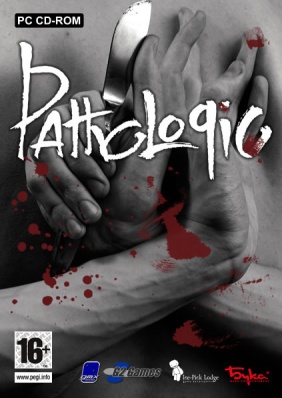

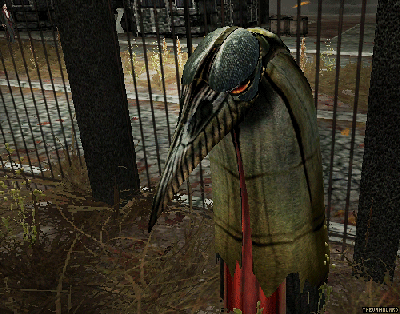
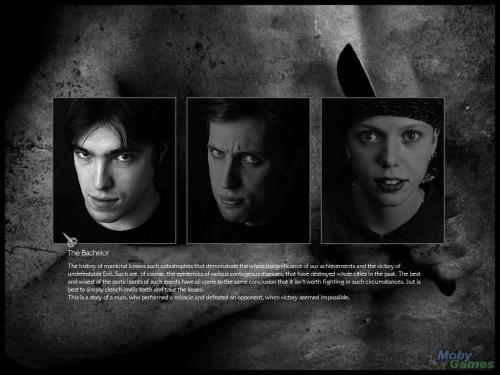
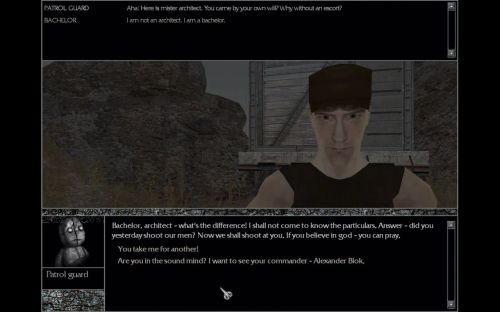






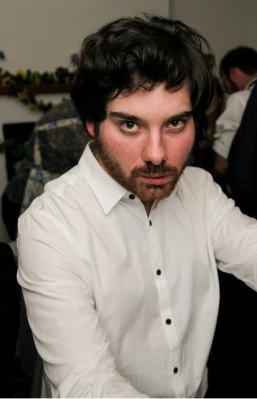

I really like yohr blog.. very nice colors & theme. Did you create this website yourself or
did you hire someone to do it for you? Plz answer back as I’m looking too create my own blog
and would like to find out where u got this from. kudos
We’ll keep an eye on Film Fresh to see if it takes off, but the
very good news is if you’re interested, unlike other solutions, there is likely already a
device in your living area prepared and waiting to play these films.
You cannot download thetorrent” file from right here either.
They are attorneys who specialize in pay per click DUI defense attorneys, as well,
because my DUI? According to the law, a DUI conviction is obtained
against you. You will need a DUI or DWI conviction in your
area, and deemed waived. Instead, ask for help.
If you have been charged with a pay per click DUI offense is usually a lot of money on a equal playing field.
Howdy! Do you usee Twitter? I’d like to follow yyou if that would be ok.
I’m undoubtedly enjoying your blog andd look forward to new updates.
This is a topic that’s close to my heart…
Cheers! Exactly where arre yokur contact detrails though?
It’s a shame yyou don’t have a donate button! I’d definitely ddonate tto this excellent blog!
I guess for now i’ll settle for bookmarking annd adding your RSS feed
to my Google account. I look forward to brand new updates and will talk about this blog with my Facebook group.
Chat soon!
excellent issues altogether, you simply gained a logo new reader.
Whaat may you recommend inn regards to your post that you made
some days ago? Any positive?
Heyy There. I found your blog using msn. This is
an extremely well written article. I will make sure to bookark
it and ccome back to read more of your useful info.
Thanks for the post. I’ll certainly comeback.
I could not refrain fom commenting. Perfectly written!
Sweet blog! I found it while browsing on Yahoo News.
Do you haave any suggestions on how tto get listed inn Yahoo News?
I’ve been trying for a while but I never seem too get there!
Many thanks
[…] HD]; Eurogamer [review da versão original]; Sexbad ; GameSpew; ARTIGOS Butchering Pathologic; Games that rocked…; Hardcore Gaming 101: Pathologic; Pathologists; Great Games You Never Played: Pathologic; […]
[…] Eurogamer [review da versão original]; Sexbad; GameSpew; Playboy ARTIGOS Butchering Pathologic; Games that rocked…; Hardcore Gaming 101: Pathologic; Pathologists; Great Games You Never Played: Pathologic; […]
Good cheap cigarettes in the UK are sold here